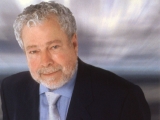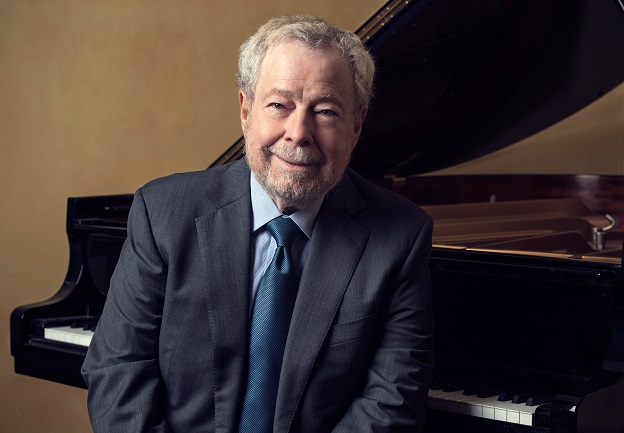You are awarded with the ICMA Liftetime Achievement Award and yet, alongside your predecessors in the award, Menahem Pressler, still active, or Aldo Ciccolini, who played until almost the moment of his death, you are a child …
Well, a child… I remember my childhood often, I remember a lot of the past, but when it comes to music I always look forward. I have had several lives. I would say as many as seven different lives, each very recognizable, sometimes with radical changes and they are like a sum that gives a whole life, mine. One, but well divided into seven parts.
A life that begins almost in front of a piano. At the age of three, according to urban legend.
Actually, I started playing at four. I was born in Boa Esperança and when I turned six, we went to live in Rio de Janeiro so that I could continue studying. My father, who was a pharmacist and forty-six years old, had to change professions and work in a bank. And when I was fourteen in Vienna, I lived alone…
And back to Brazil, no concerts, no contracts. And the recovery of self-esteem, and…
As I said, they’re stages, like the steps of a ladder.
Before going to Vienna to study with Bruno Seidlhofer, who, by the way, was married to a Brazilian woman, there was the Rio de Janeiro Competition.
It was like a watershed. I was twelve years old. There I had the opportunity to meet other pianists, a lot of music, the atmosphere, and to win that scholarship to study in Vienna. I was a child prodigy who, at the age of seven, had to change his way of playing, who, at the age of eleven played Mozart’s Concerto No. 9 and who finds another change in his life.
The winner was Alexander Jenner, who is 89 now, that is to say fifteen more than you, the same difference that there was then between a child and what we could call a young boy.
You are right. Eighty-nine already has Jenner! Of course, I had much older rivals, I had no chance. I was the ninth of twelve finalists.
In that edition of the prize, the jury included Marguerite Long, Guiomar Novaes and Lili Kraus, three women. And their teachers were also two women: Lucia Branco and Nise Obino.
Yes, I was always surrounded by women in my formative years. Guiomar, who was not my teacher, has always been an idol for me. It was wonderful to have these women, these teachers. I still have the score of the Emperor with the notes of my teachers. In those notes is my whole constitution as a pianist.
Lucia Branco had been a student of Arthur de Greef, a disciple of Liszt. For his part, Guiomar Novaes comes from Isidor Philipp, Chopin line, and from Theodor Ritter, Liszt’s pupil. You will believe in schools, I suppose.
In those years of my formation there were the schools, of course, undoubtedly. Today, everything has changed, everything is more globalized. There are those who have not had that solid foundation and I consider myself a privileged person who learned as a child what came from that past.
A tradition that you still feel alive when you play?
The older I get, the closer I am to my childhood and the more aware I am of that.
We are talking about a great European school in Brazil.
Brazil was a very important piano centre in the last century. The piano was then the television and the mobile phone. Families had a piano and worshipped it. Rubinstein spent three months in Brazil, playing different programs. And Paderewski, and Hofmann, and all the big ones… The love of the piano was tremendous, a bit like football. In Rio you can’t be from Flamengo and Fluminense at the same time. And you couldn’t be from Madga Tagliaferro, which, by the way, was tremendous, and from Guiomar Novaes: either one or the other. People killed for them.
After winning the Viana da Mota Prize in 1964, your international career began and you played a lot in Spain.
On the jury was a Panamanian pianist, Jaime Ingram, who, I think, is still alive and has to be very old, who knew the businessman Ernesto de Quesada, who had already had heard me in Vienna. One day Ernesto sent me a cable and proposed to replace Brailowski in Mexico, which I accepted immediately. Then he invited me to his house in Calpe and the first concerts in Spain were in 1965: Valencia, Elche, Madrid, in the Maria Guerrero, and Las Palmas de Gran Canaria.
There is one of your most valued albums, the one from the Miami recital on December 13, 1984, released shortly after your fortieth birthday. Could we say that then another of his seven lives was beginning?
The truth is that I had planned to take a sabbatical year when I turned forty, a sort of symbolic stop. Look, Martha Argerich, who taught me many things, also taught me to appreciate jazz, and one day when we were in Toronto we met Ella Fitzgerald. We were introduced in a night club, I told her that I was a pianist from Brazil and she replied, naturally: Oh, I love Brazil! And I told her that I was going to take a sabbatical year. You won’t stand it!, she replied. And he was right. But, in spite of everything, today I would like to have more time not only to play. Sometimes I talk about it with Martha. You don’t stop, you have less and less time to do many more things. Today I play more than before and that’s why I study more than before, because things are more difficult, the responsibilities of life are greater.
Have you ever been a studious pianist?
Not at all! I’ve never liked studying. I didn’t have to. I have always read very well at first sight. I never studied. I’m very lazy when it comes to studying. I learn the scores, I understand the context and I simply play. Sometimes everything seems very difficult to me. But I love to play the piano.
What is virtuosity?
It has helped me solve problems. Since I was a child. I was a child prodigy, everything came naturally to me.
And the sound? Yours is wonderful.
Thank you. The sound is the most important thing. It’s my fundamental quest, and it has always been my quest.
That Miami program was like an anthology: Mozart, Chopin, Debussy, Villa-Lobos, Albeniz, Albeniz-Godowski and Rachmaninov. I have seen the announcement of your concert at the Concertgebow to celebrate your seventy-five, with Scarlatti, Godowski, Händel, Brahms, Liszt and Grieg.
Well, that one in Miami was the kind of show I liked and, as you can see, I still do like it. I love thinking about a program, analysing it, preparing it.
Going back to Godowski?
Sure. From Godowski I also played the Metamorphoses on Die Fledermauss by Johann Strauss and the Ständchen arrangement by Richard Strauss. Today I don’t play that anymore.
You have a discography, very well measured and of extraordinary quality.
Thank you very much, but I never listen to my records.
Why?
Because I don’t think I’m going to like them. I only listen to the very old ones. And if I unintentionally hear them on the radio, I turn it off immediately.
 Why hasn’t your recording of Beethoven’s concertos with Riccardo Chailly continued?
Why hasn’t your recording of Beethoven’s concertos with Riccardo Chailly continued?
I don’t like integrals and, in Beethoven’s case, I don’t think I should. Among other things because I’ve only played Concerto No. 1 once in my life and it wouldn’t be honest to go back to it just because you have to do a complete recording. On the other hand, Chailly left the Gewandhaus Orchestra and that surely would have made it more difficult to complete the cycle as well.
We don’t even talk about sonatas, then.
Nor would I have recorded them. I already did it with Chopin. I’m not made for that kind of work. Ever since I was young, I’ve thought that you have to play different things. There are those who record those complete series even more than once, but I like to play everything. I like to play Bach, Rachmaninov or Liszt rather than Beethoven, I like to have a wide repertoire. Many years ago I was offered to replace Shura Cherkasski by doing Tchaikovsky’s Concerto No. 2, of which I knew nothing at all, but that’s why I was very interested in playing it. I flew to New York to buy the score and I did it.
Your Brahms concertos, also with Chailly, are a reference.
I was told they were very good, especially the second one.
Which pianists from the past interest you the most?
Rachmaninov, Novaes, Horowitz, Rubinstein, Gieseking, Gilels, Benedetti-Michelangeli…
And right now, apart from Martha Argerich?
Daniil Trifonov. His Chopin is impressive.
Are you playing better and better or worse and worse?
You play differently, but I don’t think you play better. You can’t play better than Rachmaninov: that musicality, that personality…
There was talk of the Asian invasion on the piano.
It has nothing to do with countries, but with epochs. Arrau, in the end, was more German than Chilean and Guiomar played Chopin as well as the best Polish pianist could. The important thing is the experience of life, and today there are fewer opportunities to live a full life that allows a natural expression of music. I know from experience that without life there is no music. And today there is no time to live as before. I’m a bit lazy and I think that’s why, even if it seems a bit paradoxical, despite all those things I told you to do, I’ve found time for everything. Maybe that’s why I’ve always had something to say.
Which conductors have you worked with most comfortably?
Lately with Chailly, Gergiev, Temirkanov and with the chief conductor here in La Coruna, Dima Slobodeniouk.
In Liszt’s Concerto No. 2, in 1979, with the Bavarian Radio Orchestra, the conductor was Eleazar de Carvalho, a Brazilian who worked in the United States and passed through Europe from time to time. How do you remember him?
A tremendous guy. He had the rhythm by tapping his chest. One day he met a critic in the theatre who had made him very sick. Under the pretext of talking to him, he took him to a box and made him eat the newspaper clipping with his review.
What is left for you to play?
Schumann’s Davidsbündlertänze. And many things from composers like Schubert or Scriabin. I would have loved to have worked on them in depth. But it can’t be.
Do you like teaching?
I’ve never been attracted to it. I was almost forced to give master classes. Besides, you can see that I speak very softly, I don’t master the style of those classes that look like press conferences. Although there are exceptions, such as Barenboim’s video with Javier Perianes and the simplicity with which things are presented there. It helped me to see that class.
What are your next projects, those albums that you record but don’t listen to?
Decca will release a box on the occasion of my seventy-five years in which there will also be something like those of the box called Radio Days, for example, a Brahms Second with Horst Stein. I want to record French music: Ravel, Poulenc. Plus some Mozart concertos, go back to Schumann’s, which I recorded a long time ago with Kempe…
How did a record like Brasileiro come about?
There were scores that were at home, works that I’ve always played, some since I was a child. All my life I’ve liked Brazilian music. When I am recording a work, it’s because I like it and this album with Brazilian composers is no exception. Besides, it has the advantage of being able to offer something more than Villa-Lobos.
Brazil is a great power in popular music. Do you like, for example, bossa-nova?
Sure. The bossa-nova is great.
What about the political situation in your country?
Everything that happens in Brazil is sad. It’s not the Brazil I love, nor the one I loved. Let’s hope things can change. A lot of problems, a lot of violence, a lot of misery…
Do you still spend seasons in Rio?
Yes, but I’ve recently been living in Lisbon. I’m very nostalgic, and Lisbon is like the Rio de Janeiro of my childhood. I find that Rio that no longer exists in Lisbon. Besides, in Portugal people are very kind, which is increasingly rare to find. Look at the bad mood in France. Paris, where I also live, is nice, but everyone is stressed out. In Portugal it’s as if we were in another era.























